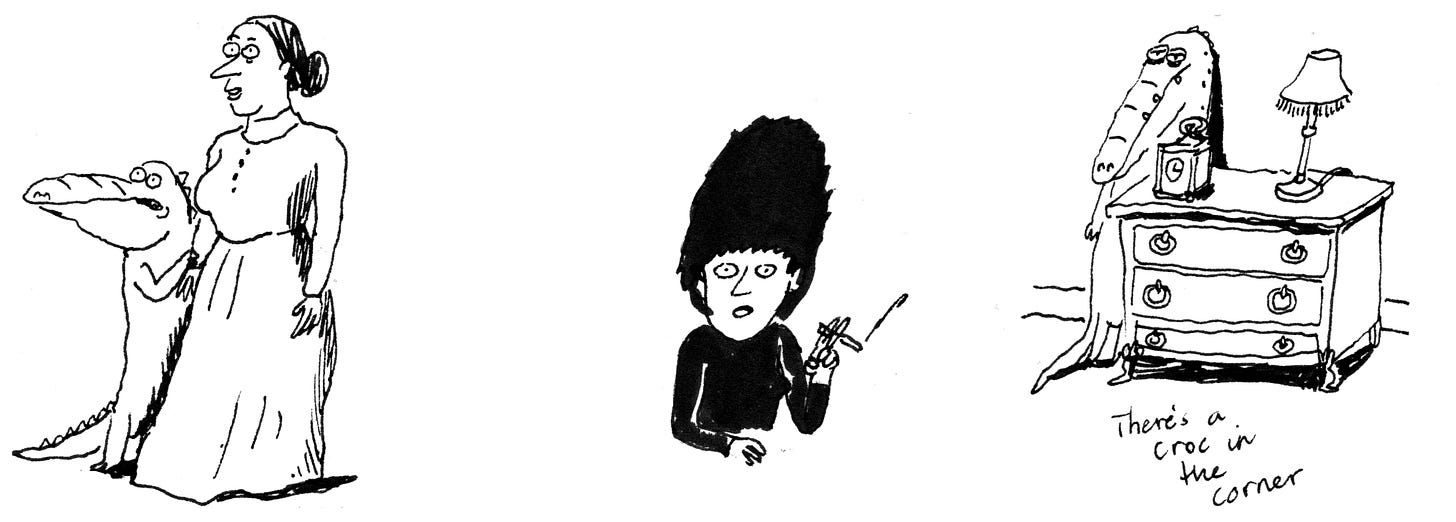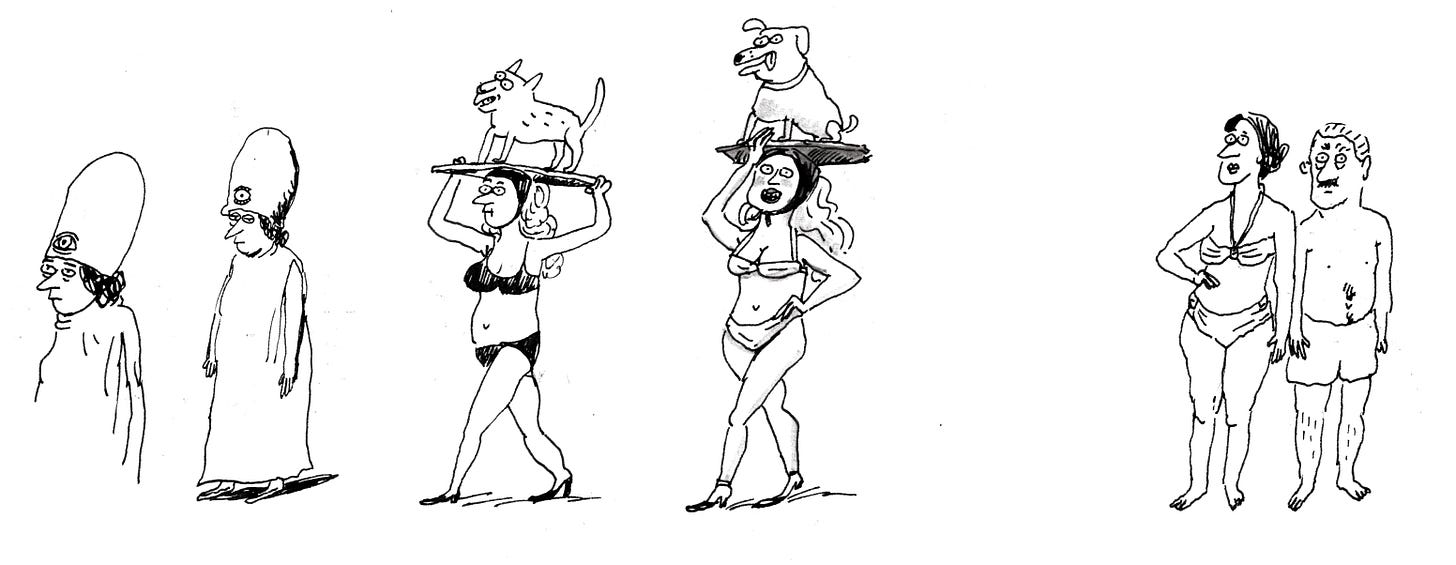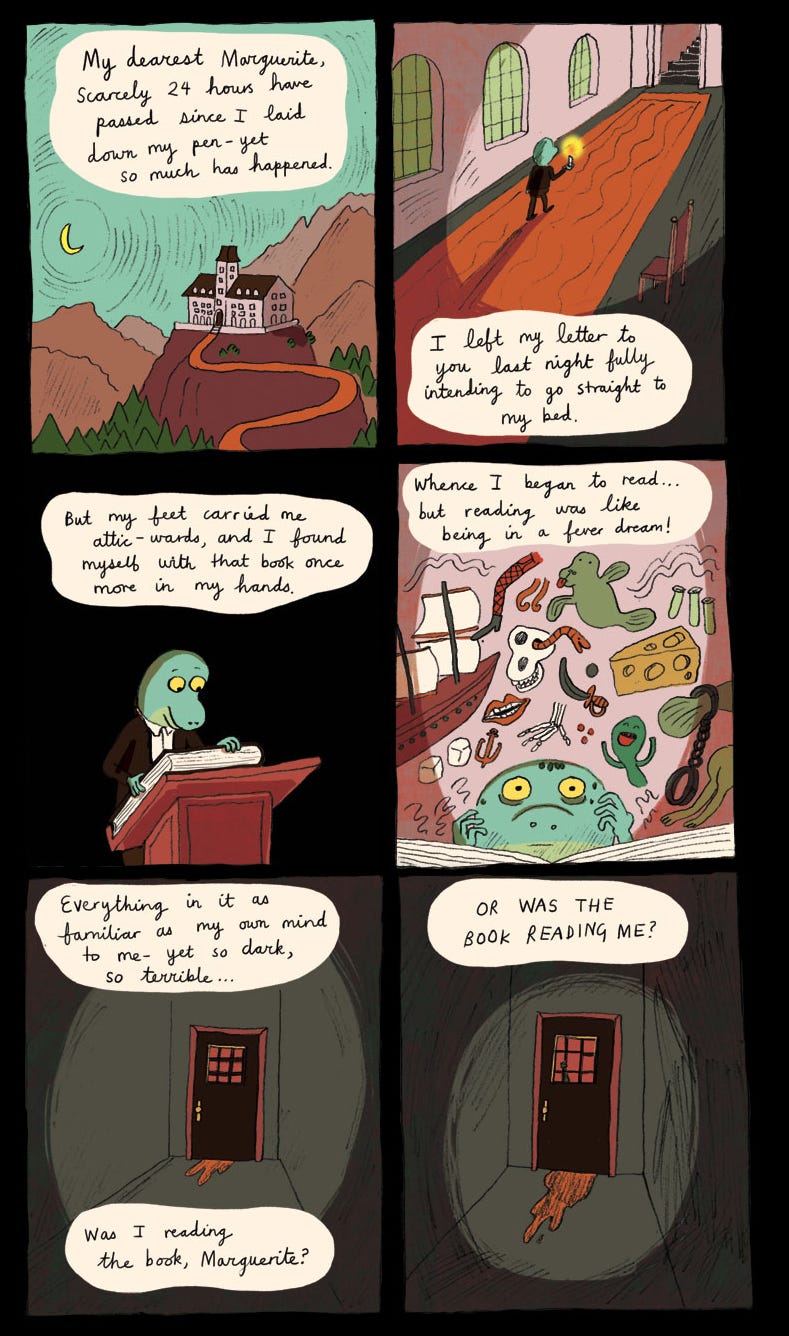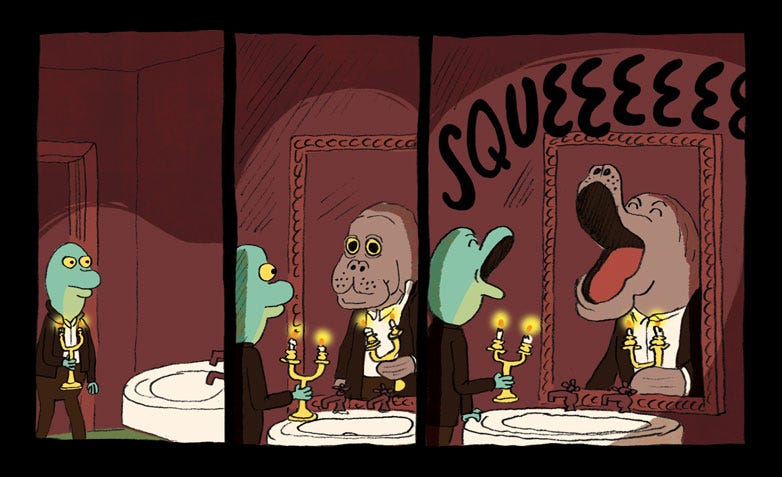Today I listened to the new episode of The Island of Brilliant. It’s a great podcast all about children’s books, with really excellent hosts Nadia Shireen and Frank Cottrell-Boyce, and a new guest each month. At the start of the show this month, Nadia also gives a really nice review of my book, for which I’m very grateful! But that’s not (entirely 😉) why I’m mentioning it here.
Their guest this month was Jennifer Killick, whose work I’m not familiar with, though as I listened to her on the podcast I extended my dog-walk to the local bookshop and picked up her latest and the one she and Frank discuss: The Witch in the Woods. She and Frank spoke about writing horror for children, how it’s a genre that is picking up momentum again, and how her inspiration for the town of Hazard, where this book is set, came from the Richard Marx song of the same name.
*Double click video, THEN press play in order to play it. Why, Substack, why?*
I’m a big fan of this song myself, and once wrote in suggesting it for Graham Norton’s old radio segment, Tune with a Tale, but alas it had already been on. I loved what Jennifer said about reimagining the ending to the song, and what had actually happened to Mary after Richard Marx had left her by the river, left her safe and sound.
I feel like so many of my ideas come from just such a place - a piece of media which I’m reimagining, finishing, or prequeling. And thinking this over this morning, I had a connecting memory. It was of a Paris Review article, Six Books We Could and Should All Write by Anthony Madrid, which I go back to now and then, as I loved the ideas in it and keep meaning to make something of at least one of them. The whole article is very funny, and I recommend it, but rereading it this morning I loved these bits in particular:
About Flaubert’s Dictionary of Received Ideas:
…it’s a dictionary all right, but instead of definitions, it tells you what to say about any given topic, if you want to come off like a conventional French twit of the 1880s. So look up “moon,” and it says, “Induces melancholy. May be inhabited.” This kind of thing.
This bit makes it sound a bit like Neil Strauss’s The Game, for 19th century incels who can’t make chat. And “May be inhabited” really made me laugh this morning. *is immediately eaten by aliens*
About Li Zhi’s A Book to Burn:
This last one, I’m cheating. A Book to Burn is not really what it should be. The story is that Li Zhi, the late Ming philosopher and gadfly, wrote this book thinking to enclose therein all his completely unacceptable views. For example, the idea that women are human beings and should be educated. Also, that some kinds of Confucianism suck. He called the thing A Book to Burn, implying that if you were caught with it, you would be executed.
… But see, with a backstory like that, I was hoping for a set of aphoristic essays espousing ideas that are timelessly intolerable—not just intolerable in the year 1600 in China. I basically paged through the book agreeing with everything or not caring, which is to say the book did not speak to my concerns. I think I was looking for something more like 120 Days of Sodom.
Have you given any thought to 120 Days of Sodom lately? My philosophy professor at Penn State told us that Sade’s idea was to write a book one glance into which would entail eternal damnation for the reader. Open to any page, you’re going to hell. See, to me, that’s the spirit.
“Timelessly intolerable”!!! Hilarious. Also a really good description of my teenage diaries - I don’t think I’ll live long enough to put sufficient years between me and their inception to make them readable to me.
120 Days of Sodom stuck with me from first reading this article in 2018. Not because I’m keen to try out ole M de S’s suggestions (a swift read of the summary is revolting enough), but because of the idea of a book “one glance into which would entail eternal damnation”.
I drew a comic in 2019 called The Voice of the Manatee, in which a lizard who is going through his dead uncle’s effects finds a mysterious book…
To glance into this book, as it turns out…
… is to become a manatee!
… which doesn’t end well for him (the full comic of this is on my website). I love stories about magical objects, especially books, that have this kind of altering power. Perhaps it’s just a useful story engine to get stuff happening - it’s such a good one!
If you fancy picking up your very own copy of 120 Days of Sodom, it seems in 2016 it was published as a Penguin Classic!
So, here we are, at the end of this meander. Read, and be damned!











I believe you're something of a horror buff, so I'm surprised you haven't mentioned HP Lovecraft here, whose spectral presence looms over this post. The concept of a damned (and damning) codex pops up again and again in his writing - usually styled as the Necronomicon, but he imagines others also. I hadn't heard that nugget about de Sade's intentions before, but Lovecraft was well-read, so perhaps he knew of the background to 120 Days and drew inspiration from it. Of course his are tomes of necromancy rather than a bluffer's guide to sexual depravity, but the two concepts are not unrelated, and to cite just one example I believe comics master Alan Moore has explored the magic-perverse practices connection in some of his more lurid work. Turning back to your own efforts, the transformation of Phillip into an otherworldly aquatic creature appears to directly echo Lovecraft's famous (and quite decent) novella "The Shadow Over Innsmouth". The conceit of discovering one's horrifying transformation through an unfortunate glance in the mirror features prominently in that story too, in the denouement. So I'm left to wonder if Lovecraft's ouevre is rattling around inside your head with its influence merely unstated, or if perhaps you are unfamiliar, or not a fan...
Yours is one of the newsletters I've subscribed, actually read AND enjoy every time!
Thanks for the song, I hadn't heard it. And the article sounds fun, I saved it for later.